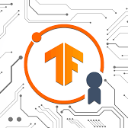
KServe : Scalable and extensible model serving for Kubernetes
KServe: in summary
KServe is an open-source model serving platform built on Kubernetes, designed to deploy and manage machine learning models efficiently in production environments. Originally developed as part of the Kubeflow ecosystem and now a CNCF (Cloud Native Computing Foundation) project, KServe is used by MLOps teams, data scientists, and machine learning engineers who need to serve models at scale with minimal operational complexity.
KServe supports multiple ML frameworks—including TensorFlow, PyTorch, XGBoost, Scikit-learn, and ONNX—and abstracts away infrastructure concerns through Kubernetes-native capabilities. It offers advanced features such as autoscaling, canary rollouts, and out-of-the-box model explainability and monitoring. Its extensible architecture makes it especially suitable for enterprise-grade, multi-tenant model serving.
What are the main features of KServe?
Multi-framework model serving with standardized inference interface
KServe supports deploying models from various machine learning frameworks through a unified interface, simplifying model deployment workflows.
Supports TensorFlow, PyTorch, Scikit-learn, XGBoost, ONNX, and custom models via Docker containers.
All models conform to a common inference protocol using REST or gRPC.
Reduces the need for custom serving logic across different frameworks.
This allows teams to standardize serving infrastructure while maintaining flexibility in model development.
Kubernetes-native autoscaling and traffic management
As a Kubernetes-based system, KServe leverages the platform’s orchestration capabilities to manage scaling and traffic routing.
Automatic scaling to zero for idle models to save compute resources.
Concurrent scaling up based on request volume.
Canary deployment strategies for safe rollout of new model versions.
Routing traffic between model revisions with configurable percentages.
These capabilities make it easier to manage resources dynamically and minimize deployment risks.
Integrated model monitoring and explainability
KServe includes tools to monitor model behavior and explain predictions, which are critical in regulated or production-sensitive environments.
Pluggable logging and monitoring systems (e.g., Prometheus, Grafana).
Out-of-the-box support for model explanation using Alibi and Captum.
Drift detection and data validation through integration with other tools.
These tools help teams detect issues like data drift or performance degradation in real time.
Support for custom inference servers and preprocessors
Beyond pre-built model servers, KServe supports custom inference logic and data transformations using sidecar or container-based implementations.
Custom predictor, transformer, and explainer containers can be defined.
Modular design enables chaining of preprocessing, prediction, and postprocessing steps.
Ensures compatibility with domain-specific processing pipelines.
This extensibility is valuable in industries like healthcare or finance where input/output formats and processing requirements vary.
Multi-tenant and production-ready architecture
KServe is designed for use in multi-team and enterprise environments, providing separation, isolation, and configurability.
Namespaced model deployment for team-based separation.
Fine-grained access control via Kubernetes RBAC.
Integration with cloud storage systems (S3, GCS, Azure Blob).
This allows large organizations to deploy and manage models in a governed, secure, and scalable manner.
Why choose KServe?
Built for Kubernetes from the ground up: Seamless integration with Kubernetes ensures robust orchestration, scalability, and resilience.
Supports multiple ML frameworks: A single platform to serve diverse models without maintaining separate infrastructure.
Dynamic and safe deployments: Autoscaling and canary rollouts reduce resource usage and deployment risk.
Advanced observability features: Monitoring, logging, and explainability tools are built in or easy to integrate.
Extensible and modular design: Supports highly customized inference workflows and enterprise-level deployment scenarios.
KServe: its rates
Standard
Rate
On demand
Clients alternatives to KServe

This software efficiently serves machine learning models, enabling high performance and easy integration with other systems while ensuring scalable and robust deployment.
See more details See less details
TensorFlow Serving is designed to serve machine learning models in production environments with a focus on scalability and performance. It supports seamless deployment and versioning of different models, allowing for easy integration into existing systems. With features such as gRPC and REST APIs, it ensures that data scientists and developers can effortlessly interact with their models. Furthermore, its robust architecture enables real-time inference, making it ideal for applications requiring quick decision-making processes.
Read our analysis about TensorFlow ServingTo TensorFlow Serving product page

Provides scalable model serving, real-time inference, custom metrics, and support for multiple frameworks, ensuring efficient deployment and management of machine learning models.
See more details See less details
TorchServe offers advanced capabilities for deploying and serving machine learning models with ease. It ensures scalability, allowing multiple models to be served concurrently. Features include real-time inference to deliver prompt predictions, support for popular model frameworks like TensorFlow and PyTorch, and customizable metrics for performance monitoring. This makes it an ideal solution for organisations looking to optimise their ML operations and improve user experience through reliable model management.
Read our analysis about TorchServeTo TorchServe product page

A platform designed for seamless machine learning model serving, facilitating rapid deployment, scaling, and integration with various environments and frameworks.
See more details See less details
BentoML is an innovative platform tailored for the efficient serving and hosting of machine learning models. It streamlines the process of deploying models into production, ensuring quick integration with various cloud environments and development frameworks. The platform supports diverse format conversions, making it adaptable for multiple use cases. Its robust scalability features allow models to handle varying workloads flexibly, while comprehensive monitoring tools provide insights, aiding in maintaining optimal performance.
Read our analysis about BentoMLTo BentoML product page
Appvizer Community Reviews (0) The reviews left on Appvizer are verified by our team to ensure the authenticity of their submitters.
Write a review No reviews, be the first to submit yours.